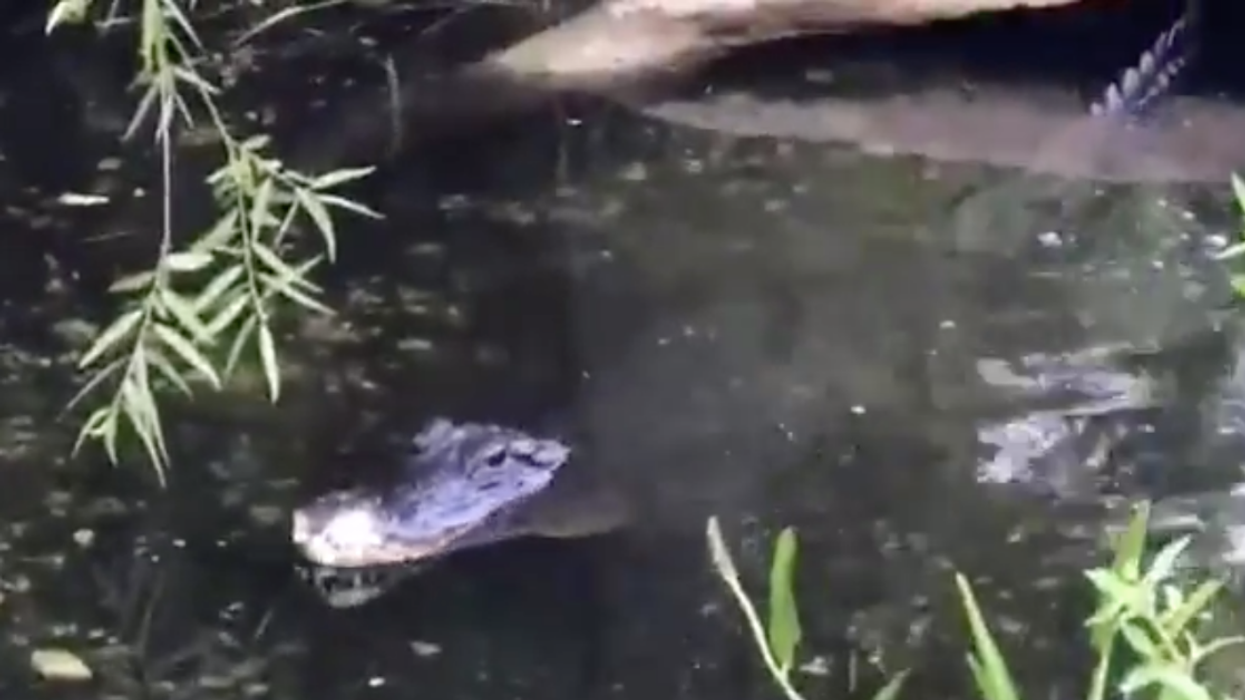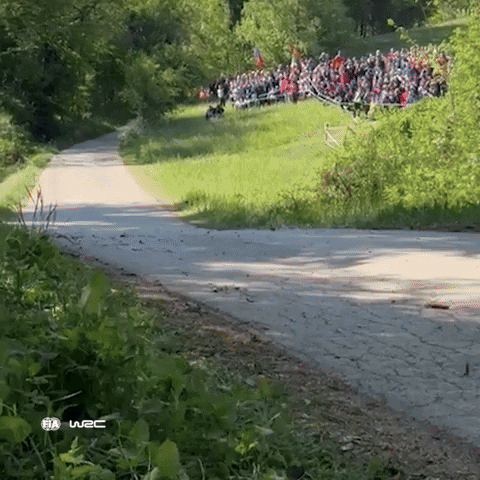Listen, you.
I get it.
You think you've seen everything.
But have you ever seen two alligators facing off in the Florida Everglades?
We think not.
Thanks to a video taken by Josh Boyd, who happened to be chilling in the Florida Everglades at the time the two alligators decided to jockey for position, we have footage.
Check it out (turn your volume up too):
"It must be near mating season, as several male gators were all doing it," Boyd said. "These were the only pair I saw that were squaring off, though."
We're sorry, but that SOUND is giving us the creeps.
Still cool, though.
We've got a lot of smart alecks here, too:
But seriously:
This is actually how alligators attract mates! As Gator Alley Farm points out:
While adult alligators tend to be unsocial creatures, they do engage in complex mating rituals. Their search begins by announcing their presence with a low bellowing sound to attract their mate. Males typically slap the water with their jaws and lift their tails high, causing vibrations throughout the swamp. We like to call this their "water dance." Like most animals, alligators use scents as well, releasing an odor from their musk glands.
When an alligator finds their potential mate, they initiate direct courtship by rubbing and pressing each other's snouts and backs. This behavior is particularly important, as it shows a sort of contest of strength while proving they're better than other potential suitors. This "contest" is used to win over the female alligator and stimulate further courtship. While the typical courtship routine may last hours, copulation is very short (usually less than 30 seconds).
Once the females have mated several times for the season, they begin to build a nest from mud, plants and sticks to lay their eggs. The typical alligator lays between 20 to 50 eggs. After the hard-shelled eggs are laid, the mother alligator will cover them with more mud, sticks and plants and wait for their arrival during their 65-day incubation period.
Spectacular Alligator Mating Display | Animal Super Senses | BBC Earthwww.youtube.com
Whoa. We'll watch that from a distance, thanks.














 Hide Blanket GIF by Instanietje
Hide Blanket GIF by Instanietje  Foam Reaction GIF
Foam Reaction GIF  Mental Health Therapy GIF by All Better
Mental Health Therapy GIF by All Better 

 Friday Driving GIF by FIA World Rally Championship
Friday Driving GIF by FIA World Rally Championship  episode 11 bad food GIF
episode 11 bad food GIF  talking homer simpson GIF
talking homer simpson GIF 
 Cartoons Button GIF by Nickelodeon
Cartoons Button GIF by Nickelodeon 
 @DanTML_/YouTube
@DanTML_/YouTube @voeqx7894/YouTube
@voeqx7894/YouTube @hendrxx9593/YouTube
@hendrxx9593/YouTube @anakinskywalker8877/YouTube
@anakinskywalker8877/YouTube @getshiddonn/YouTube
@getshiddonn/YouTube @sachmanyo/YouTube
@sachmanyo/YouTube